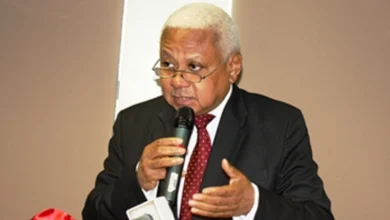CEOs Forum 2025: A turning point for Tanzania’s public sector reform

TANZANIA: AS Tanzania pursues the ambitious target of becoming an upper-middle-income country by 2050, the role of public institutions is emerging as a critical factor that could either accelerate or hinder progress.
Against this backdrop, the upcoming Chief Executive Officers (CEOs) Forum 2025, scheduled for August 23 to 26 in Arusha, represents more than a routine gathering, it signals a strategic pivot aimed at reshaping the public sector into a dynamic, competitive force within the national economy.
Bringing together over 700 Board Chairs and Chief Executive Officers from public institutions, the forum is positioned as a platform to address fundamental questions about institutional effectiveness, revenue diversification and global competitiveness.
These issues reflect longstanding challenges faced by public entities, including bureaucratic inertia, limited innovation and gaps in accountability mechanisms.
The Office of the Treasury Registrar (OTR) has taken the helm in orchestrating this initiative, underscoring a governmental recognition that public institutions must evolve rapidly to remain relevant.
The scale of the forum itself 700 high-level participants, demonstrates the government’s commitment to inclusivity and comprehensive reform, acknowledging that piecemeal efforts have thus far fallen short of desired outcomes.
Ms Lightness Mauki, Director of Performance Management, Monitoring and Evaluation for commercial public entities, articulated the urgency earlier this week in Dar es Salaam.
She stressed that the forum is a “strategic response to the demands of a fast-evolving economic environment,” implicitly acknowledging that the window for incremental change is narrowing.
Aligning public institutions with Dira 2050: Vision meets reality
The forum is embedded within the broader framework of Tanzania’s Dira 2050 development blueprint, which ambitiously targets a 1 trillion US dollars GDP and a per capita income of 7,000 US dollars by midcentury.
Achieving these metrics necessitates an unprecedented level of institutional collaboration and transformation.
However, the success of such aspirational goals depends on resolving structural tensions within public institutions between governance and management, between legacy systems and innovative practices and between local imperatives and global competitiveness.
Ms Mauki’s emphasis on building “strong, accountable systems” highlights the dual challenge of fostering productivity while maintaining transparency.
The forum aims to serve as a catalytic space where these tensions can be openly discussed and strategies formulated.
It implicitly acknowledges that without such alignment, the lofty ambitions of Dira 2050 risk remaining theoretical rather than practical.
Beyond dialogue: Building a reform Ecosystem
Since its inception three years ago, the CEO Forum has evolved into a critical pillar within Tanzania’s public sector reform agenda.
The chosen theme for this year, “Sustainable Business Partnerships in a Globally Competitive Environment – The Role of Public Enterprises,” signals a paradigm shift— one that moves away from traditional, often rigid, public sector models toward more entrepreneurial and partnership driven approaches.
This shift is not merely cosmetic; it demands a fundamental reconsideration of how public institutions operate.
The forum’s agenda covering institutional transformation strategies, operational efficiency, ethical leadership and practical frameworks for revenue generation and innovation reflects a holistic approach to reform.
It recognises that improving public sector performance requires systemic change rather than isolated fixes.
Moreover, the planned spotlight on institutions that have demonstrated measurable progress introduces an element of peer learning, fostering an environment where success stories can inform policy and operational adjustments elsewhere.
This approach may help overcome institutional resistance by showcasing tangible benefits.
Expected Outcomes and Broader Implications
The government’s emphasis on tangible, actionable outcomes from CEOs Forum 2025 indicates a shift from rhetorical commitments to measurable impact.
ALSO READ: 700 CEOs on course as Arusha set for Special Working session
Anticipated outputs include new management systems, reinforced ethical standards and innovation-friendly work environments.
Yet, the effectiveness of these reforms will depend heavily on follow-through both in terms of policy implementation and sustained stakeholder engagement.
The call for participation from the private sector, media, development partners and the general public reflects an understanding that public sector reform cannot occur in isolation; it requires a multistakeholder ecosystem to hold institutions accountable and support continuous improvement.
Ultimately, the success of CEOs Forum 2025 will be judged by its ability to translate dialogue into decisive action that strengthens public institutions and accelerates Tanzania’s economic transformation.
As Arusha prepares to host this landmark event, the eyes of policymakers, citizens and international partners will be fixed on whether this forum can catalyse the reforms necessary to move Tanzania closer to its long-term development vision.





